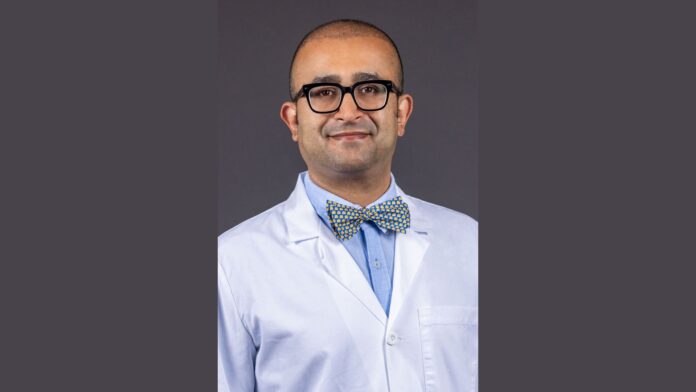Sponsored by Temple Health
Information about which surgeons to seek out or avoid for gender-affirming surgeries has traditionally spread within the trans community through word-of-mouth. While platforms like Transbucket were used in the past, people now share this information on chat boards such as Reddit and Discord.
PGN recently spoke with Dr. Alireza Hamidian Jahromi (he/him), a fellowship-trained plastic surgeon and director of Temple University Hospital’s gender-affirming surgery program, about what to look for in a surgical team.
He shared that Temple is the only comprehensive gender-affirming surgery program in Pennsylvania and one of the only few programs that is performing an updated robotic approach to penile inversion vaginoplasty in the country (robotic assisted peritoneal flap vaginoplasty).
Dr. Hamidian Jahromi credits everyone within the gender-affirming care team — from the program navigators helping with insurance, to the program’s psychologist helping navigate WPATH requirements — for the program’s success. Even as he talks highly of the program, he acknowledges that it may not be the right fit for everyone—and that’s OK.
“I never feel that it would hurt my feelings if someone comes and gets advice from us and at the end of the day will go elsewhere. As long as they will have surgery with the best person for them, who makes them feel most comfortable,” Dr. Hamidian Jahromi said. “That’s definitely [in] their best interest, and it’s fully understandable by us.”
He has found that a majority of patients who come to the Temple Gender Affirming Surgery (GAS) program have heard about the program through word-of-mouth.
“Our patients either directly know another, or know of a patient ,” he said. “This type of trusted first and second-hand information can help in selecting who you want to have surgery with.”
He also suggests trusting your gut when consulting with a surgeon—and team. Dr. Hamidian Jahromi explained that it’s important to feel comfortable for emotional wellbeing, and physical, as anxiety and stress can cause vascular constriction, potentially impacting your healing process.
“You have to have a positive experience when you go and see a surgeon,” Dr. Hamidian Jahromi said.
He explained that the surgeons at Temple conduct an initial screening to assess each person and their reason for seeking gender-affirming surgery. They will then provide an educational packet. At a first appointment, the team answers any questions and determine next steps or appointments.
The team’s goal with education and follow-up is to provide informed consent. This helps ensure patients understand the pros and cons of different surgeries and options for the results they want, as well as possible complications. The program also reviews a glossary of pre and post operative photos to help manage a patient’s expectations and guide conversation. The team also discusses surgical planning—from the level of support at home to accommodations available at work, to be ready for restrictions.
He also noted that you should be looking for a surgeon that has a familiarity with factors specific to you like your skin and body type, scar formation history, and any skin and health conditions.
Dr. Hamidian Jahromi emphasized gender-affirming surgery is not just a medical procedure; it involves a holistic journey for both the patient and their loved ones. Ensuring access to well-trained surgeons and preparing a strong support system are essential for a smooth transition. By fostering open communication with healthcare teams, patients can better navigate both the physical and emotional aspects of their journey.
You can find more resources and information through Temple Health’s Gender-Affirming Resource Library.

